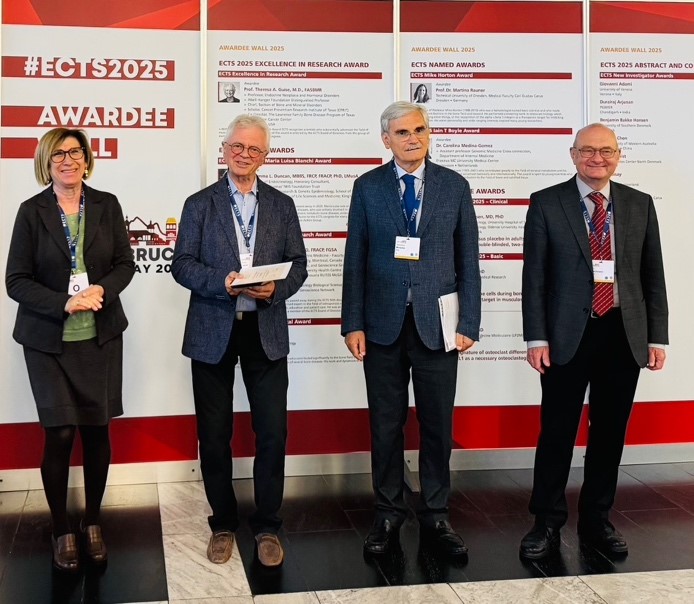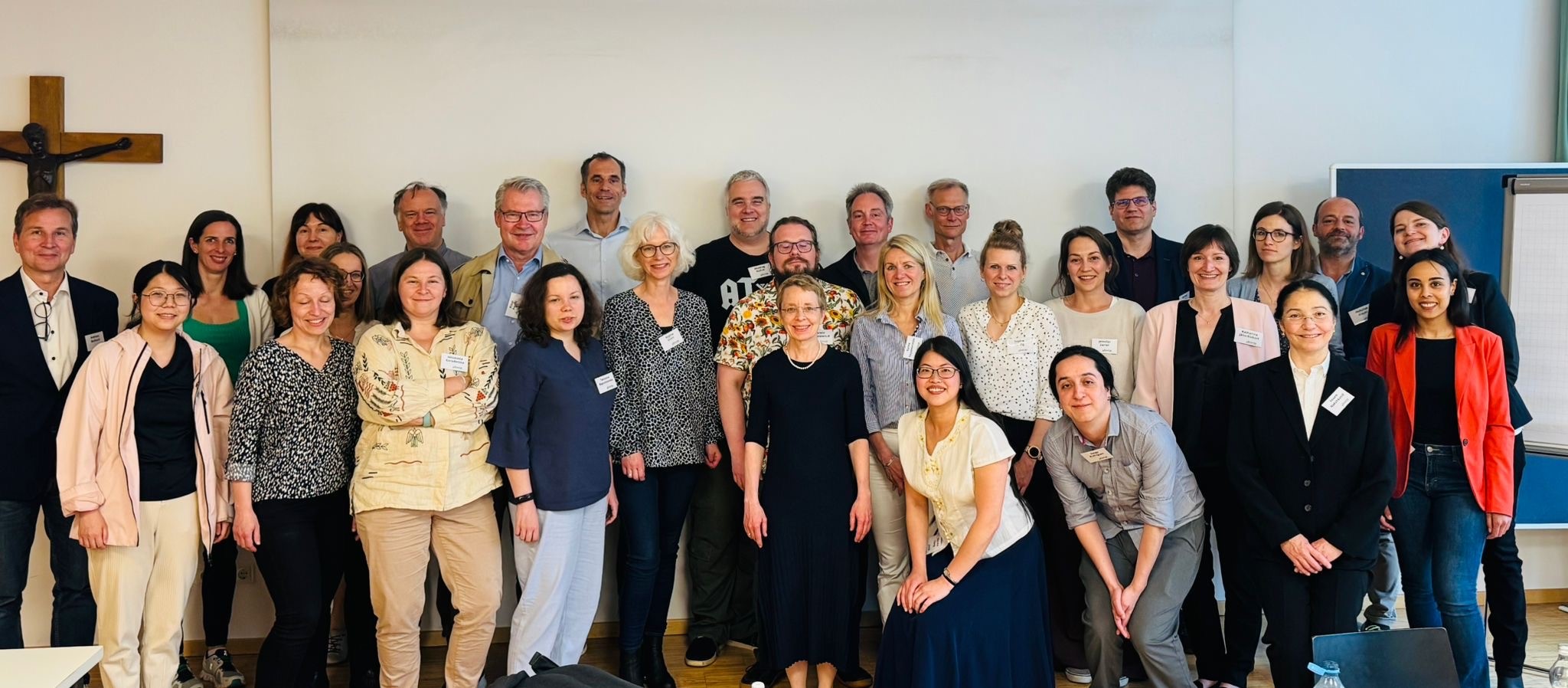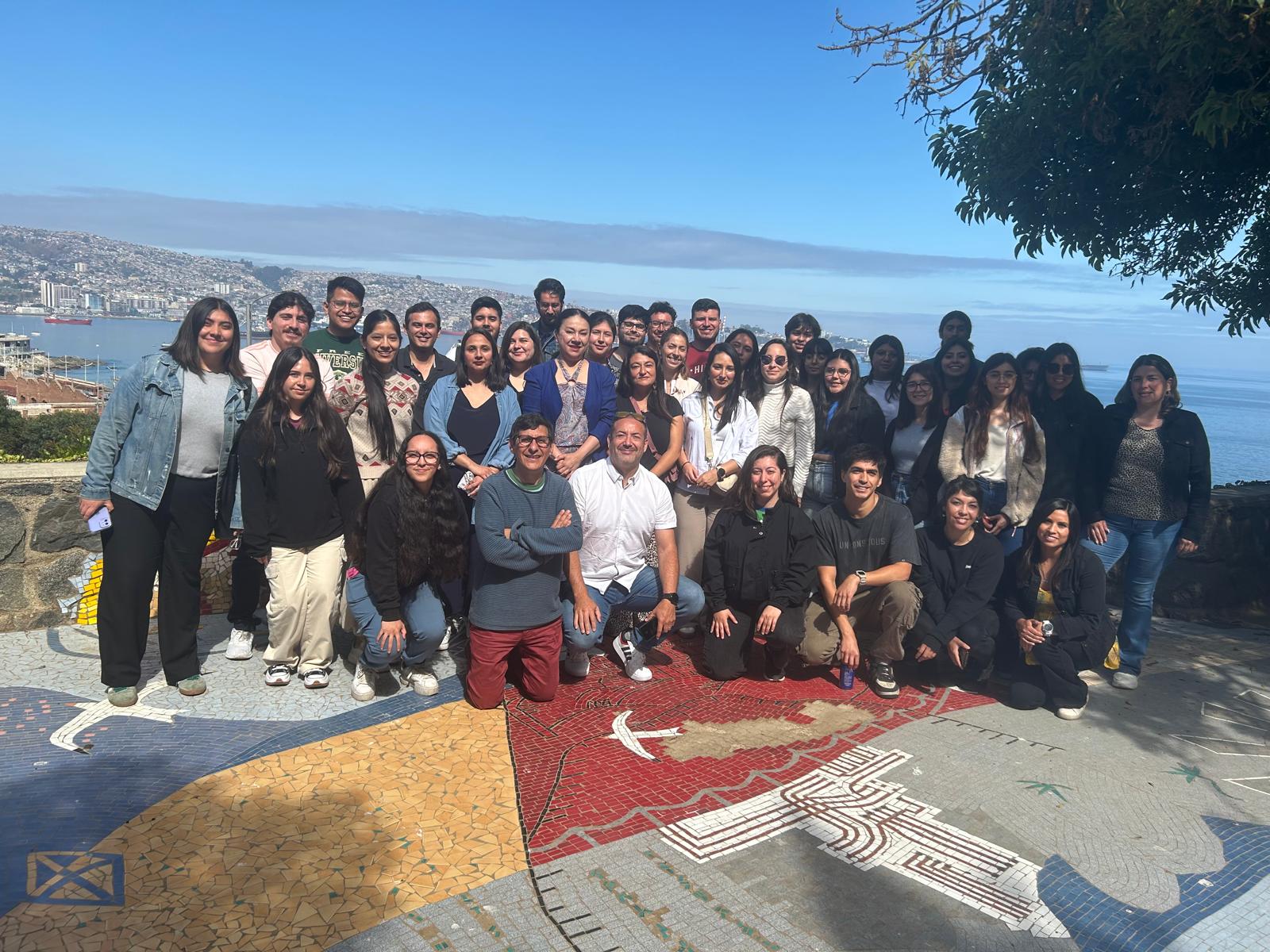Priority Program
Colonization and interaction of tumor cells in the bone microenvironment
News & Blog
International Award for Outstanding Achievements in the Field of Osteology for Prof. Dr. Franz Jakob
University Professor Emeritus Dr. Franz Jakob was honored at this year’s congress of the European Calcified Tissue Society (ECTS) (https://ectsoc.org/) with the Philippe Bordier Prize 2025. The prize is [...]
Sixth µBone Retreat in Innsbruck: Austria delivered
On May 22nd, we met in Innsbruck/Austria for our 6th µBone Retreat. Since the European Calcified Tissue Society 2025 Annual Meeting took place in Innsbruck from May 23rd to [...]
Updates by our µBone Project 14: “Bone osteotropism: Influence of confinement and mechanical properties of the seeds in the selection of the soil”
Today we are proud to share the latest updates by our µBone Project 14 led by Dr. Aldo Leal-Egana PhD in Heidelberg. Invention patent: During 2025, an invention patent [...]
Towards a better understanding of bone metastasis
Cancer is one of the leading causes of death worldwide. Despite medical progress in the treatment of the primary tumor, most patients suffer and die from metastases at distant locations, such as bone. In contrast to most soft tissue metastases, bone metastases frequently lead to fractures, pain and a poor life quality.
Once established, bone metastases represent a point of no return and are rarely curable. They are even also regarded as a new source for systemic relapse. A better mechanistic understanding of this critical step of tumor progression is essential to target bone metastases, independent of the type of primary tumor.
The key steps of bone metastasis, including the initial colonization of bone by tumor cells and the early interaction with bone cells need to be better understood.
Thus, the fundamental questions
of our consortium are
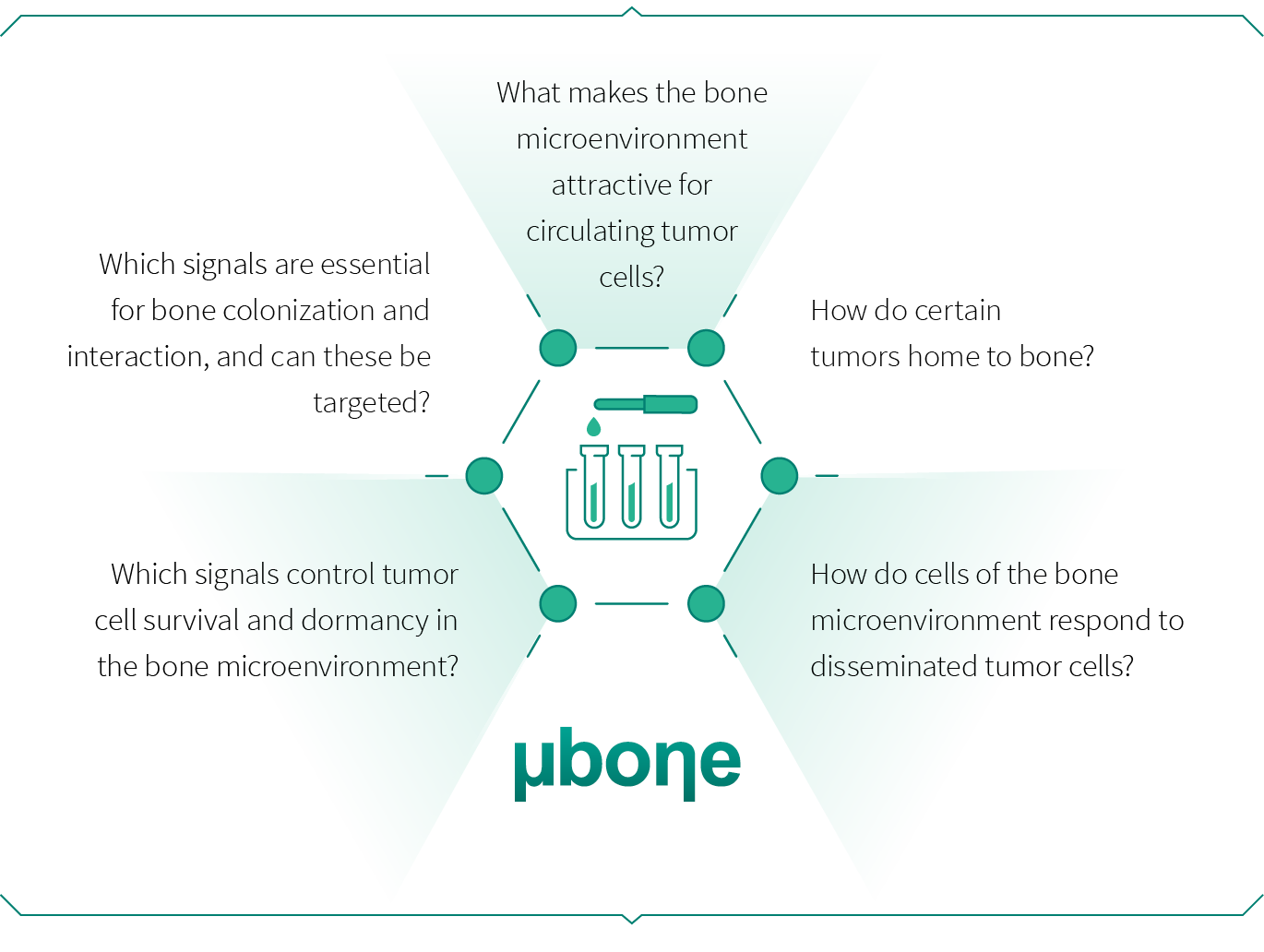
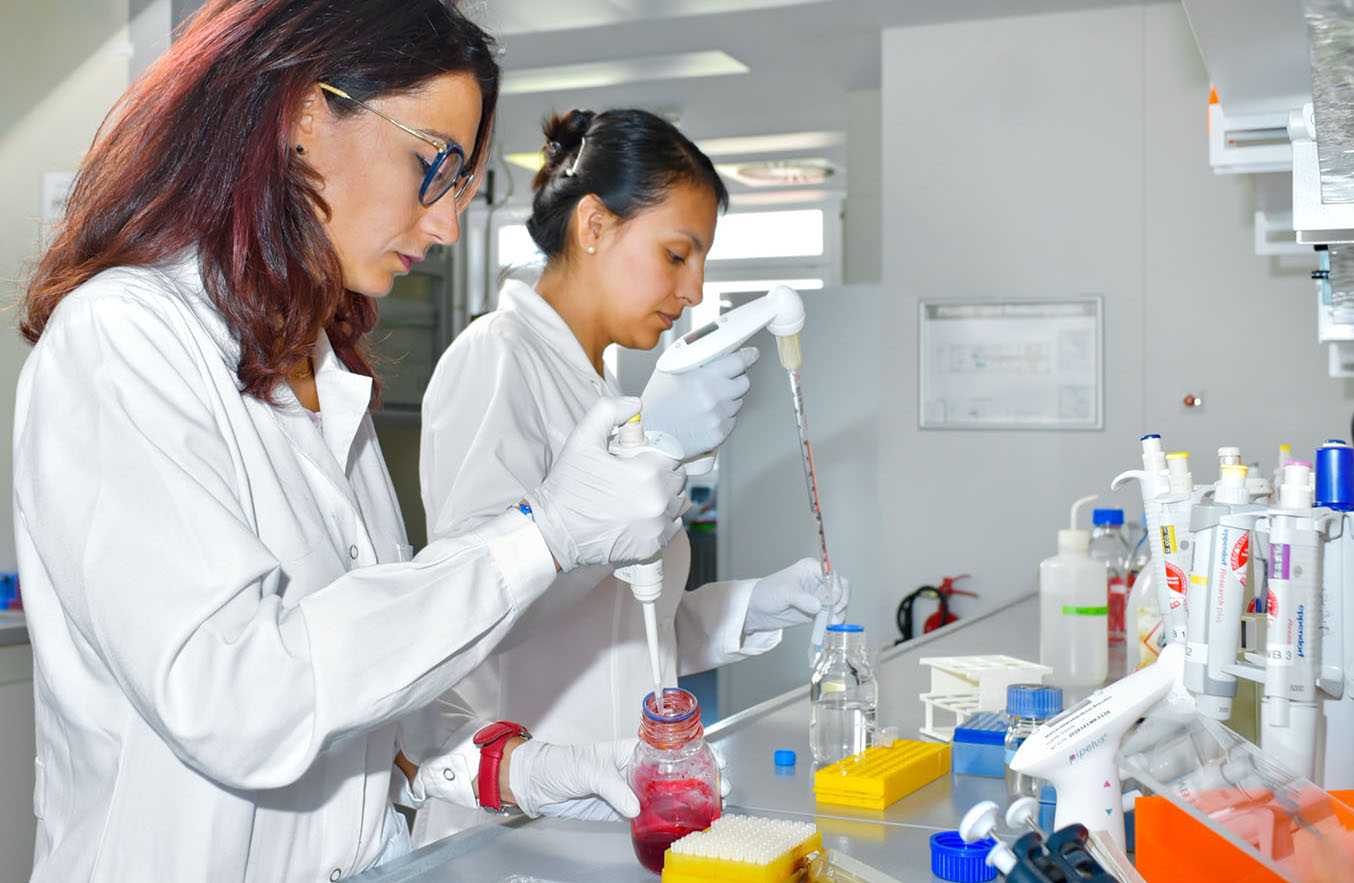
To obtain mechanistic insights into these questions, the consortium focusses on breast and prostate cancer, reflecting the most common malignancies of women and men with a high propensity for bone metastases.
The µbone consortium will include myeloma bone disease as a prototypical malignant bone microenvironment disease to gain essential lateral insights into osteolytic bone lesions, which are a hallmark of myeloma. The researchers will jointly tackle the knowledge gap on bone metastases and reveal innovative mechanistic concepts of bone-tumor interactions (as a starting point) for subsequent studies to prevent or cure bone metastases.

